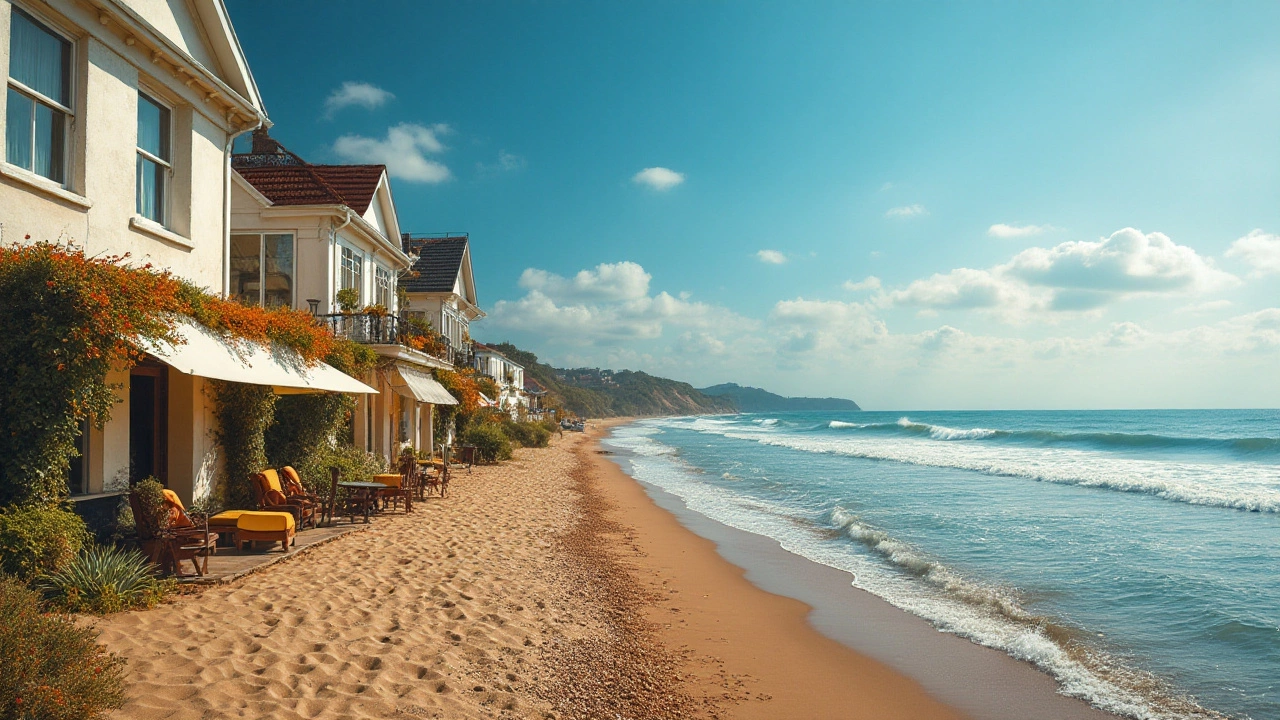Beach Resort Guide: Your Quick Start to UK Oceanfront Stays
Looking for a place where the sea is just steps away from your room? You’re not alone. Travelers love the sound of waves, the salty air, and the ability to walk onto the sand at any time. In this guide we’ll break down what truly counts as a beachfront hotel, share the best UK spots, and give you a few tricks to snag a great deal.
What makes a hotel truly beachfront?
Not every "beach view" hotel is right on the shore. A genuine beachfront property has direct, unobstructed access to the sand. That means you can walk out of the lobby and be on the beach within a minute, without having to cross a road or a parking lot. Look for phrases like "steps from the beach" or "private beach access" in the description. If the hotel mentions a sea‑facing balcony or rooms with ocean views, that’s a good sign, but it’s not a guarantee of direct access. Check guest photos – they often show the actual distance from the building to the water.
Another clue is the amenities. True beachfront resorts often provide beach‑ready services: towel rentals, beach chairs, sun umbrellas, and sometimes even a beach bar or restaurant right on the sand. If you see a pool listed before the beach, the property might be more of a pool resort than a beachfront stay.
How to pick the right beach resort for you
First, think about the vibe you want. Some UK coastal towns, like St Ives or Whitby, have charming boutique hotels that feel cozy and local. Others, such as Bournemouth or Newquay, feature larger resorts with multiple restaurants, kids’ clubs, and entertainment programmes. Decide if you want a quiet escape or a place with lots of activities.
Second, set a budget. Beachfront rooms command a premium, especially in peak summer months. To stretch your money, book early, travel in shoulder season (May or September), or consider a room with a sea view that’s a short walk from the shore instead of a direct beachfront suite.
Third, check the reviews. Guests often mention how easy it is to get to the beach, the quality of the sand, and whether the sea is safe for swimming. Look for recent reviews that mention the tide and any construction that might affect access.
Finally, think about extras. If you love water sports, hunt for resorts that partner with local surf schools or paddle‑board rentals. If you’re traveling with kids, look for shallow bays or safe swimming zones nearby. For romance, a private cabana or a sunset dinner on the beach can turn an ordinary stay into a memorable one.
Our tag page brings together articles that cover all these angles. The "What Does Beachfront Mean for Hotels?" piece explains the terminology in plain language, while the "Adults Only Resorts" article shows where you can find quiet, child‑free beach escapes. For budget‑focused travelers, the "Cheapest Places to Vacation" guide highlights affordable coastal towns where you can still enjoy a beach vibe without breaking the bank.
Ready to start planning? Pick a coastal region you like, browse the featured hotels, and use the tips above to narrow down your choice. Whether you’re after a wild surf spot, a romantic sunset, or a simple weekend of sand and sea, the right beach resort is waiting just around the corner.
Differences Between Beach Hotels and Beach Resorts
Choosing between a beach hotel and a beach resort can greatly influence your vacation experience. While both offer proximity to the ocean, they differ in amenities, atmosphere, and activities available. Beach hotels often emphasize service and convenience, while resorts provide a more integrated holiday experience with dining, recreation, and entertainment options on-site. Understanding these differences can help travelers select the ideal setting for relaxation or adventure by the sea.
